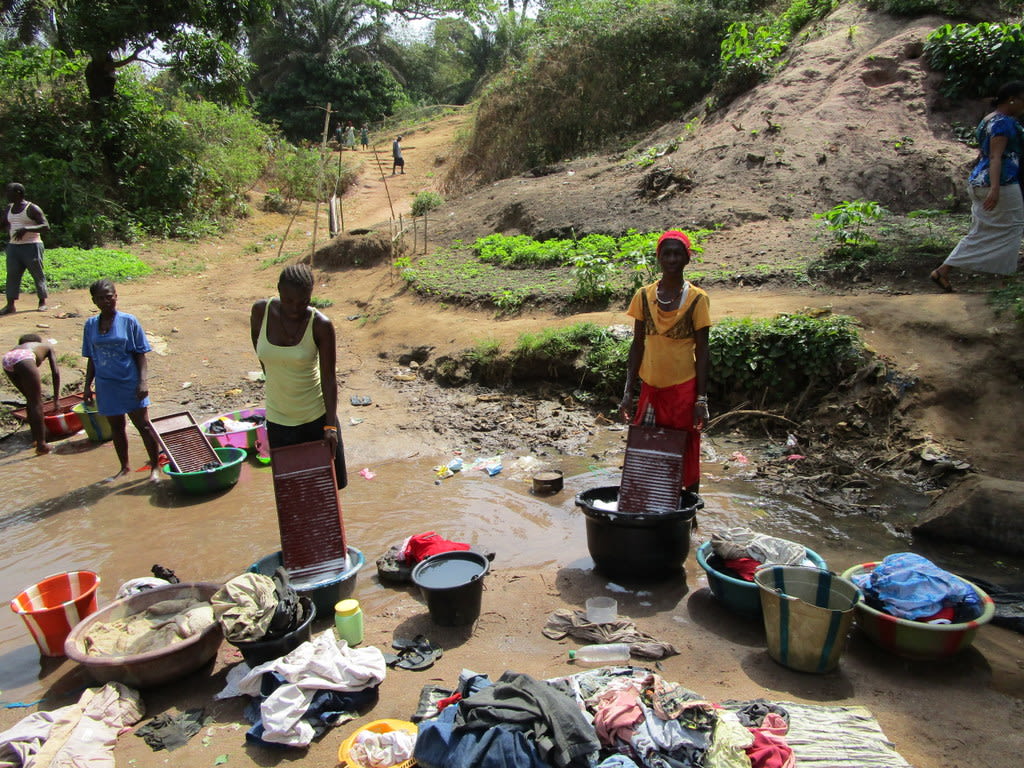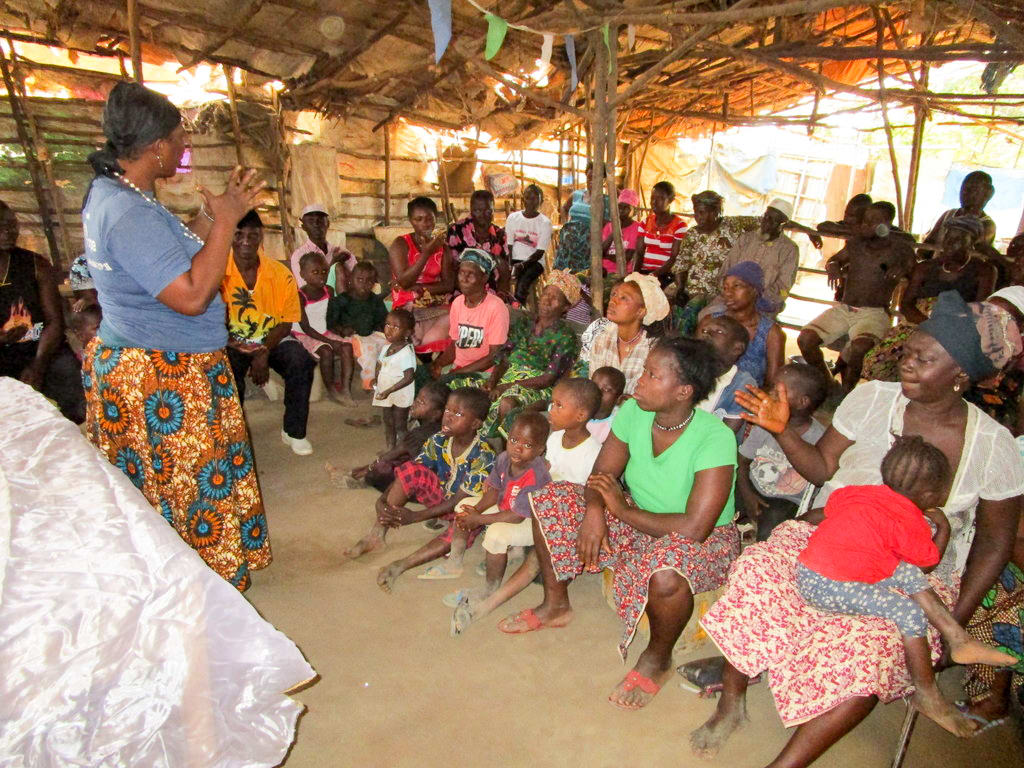Kids in Tintafor Community need to fetch water before going to school. The well is often heavily populated, leading to long lines that often make them late for school.
That is if water is even flowing.
The well was installed a few years ago, but a changing environment caused it to stop working as intended. The water table dropped, meaning that water is no longer available year-round and the amount produced is often low.
The lines and disruptions lead people to seek the nearby swamp to meet their water needs - the same open source used to carry out tasks like washing clothes.

So the people are in a very big dilemma in this community. They can either go to the well and get stuck or go to the swamp and risk drinking contaminated water.
Packaged water is available, but the cost is a burden poor families cannot endure - and the quality of the water is uncertain since it is generally unregulated. As a result, people suffer from waterborne illness due to drinking unsafe water.
In general, the area is in the middle of an urban setting, but the locality is more rural than urban. One can almost mistake it for a fishing community, reporting officer Thomas B. Lewis described.
Roughly one-third of households have latrines. Many we observed are not in good condition and do not have handwashing facilities.
"Based on my new knowledge on hygiene and sanitation, I am not satisfied with our current situation," Pa Ishmael Kamara said to us.
"Look around yourself, how many homes have decent toilets or are perfectly maintained? We do sleep with our animals and reserve little on space at all for animal houses. So we are living by God’s grace in this community."
Tintafor is very noisy with very little vegetation. Most of the buildings are mud brick with some cement plastering, often looking very aged with the potential to fall in the coming years.
Depending on the individual’s faith or occupation, the average day can start as early as 5am for Muslims and school-going children.
Petty traders are busy hawking their goods while farmers are busy clearing brush, planting or harvesting - depending on the time of year. Of course, the kids go to school and employees work in their offices.
What we can do:
Training
There will be hygiene and sanitation training sessions offered for three days in a row. We will teach about good and bad hygiene, penning in animals, and building good tools like handwashing stations and dish racks. Most importantly, the trainer will emphasize the importance of having and using even basic pit latrines.
Well Rehabilitation
We see that there's been a drop in this area's water table and the well is going dry. We feel it is important to convert this hand-dug well to a borehole at the bottom, thus giving this community a year-round source of safe drinking water.
We will be hand-drilling a borehole down inside this hand-dug well. The community will host our drill team for days at a time, and may also provide labor. Women will volunteer to cook rice for the team and the other community volunteers.
Once this plan is implemented, this community will have access to safe drinking water in both quality and quantity, even through the dry months.

 Protected Dug Well
Protected Dug Well






























